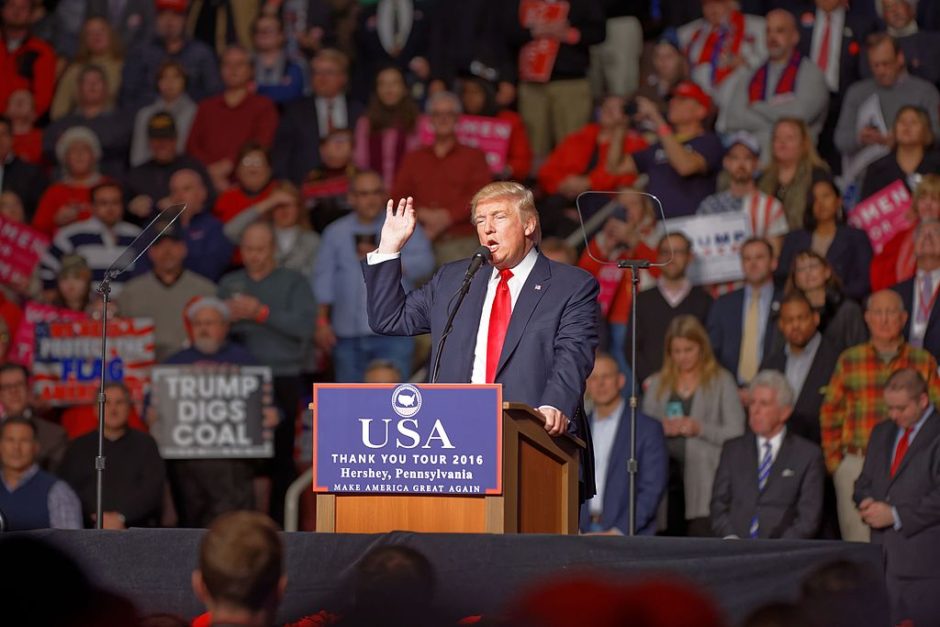Benjamin Netanyahu could hardly contain himself after Donald Trump defeated Hillary Clinton in last November’s U.S. presidential election.
In a video congratulating him on his victory, the Israeli prime minister, a catch in his voice, exuded glee, calling Trump “a true friend” of Israel and expressing confidence that he and president-elect would “strengthen the special alliance between Israel and the U.S.” and bring it to “new heights.”

Is Netanyahu’s optimism regarding Trump warranted?
On the eve of Trump’s ascension as the 45th president of the United States, all signs indicate he may become one of the most pro-Israel presidents in the history of the republic.
Trump’s predecessor, Barack Obama, significantly expanded the United States’ military and intelligence ties with Israel, and Netanyahu was demonstrably grateful for that. Nonetheless, Netanyahu had a contentious relationship with Obama, a severe critic of Israeli settlements in the West Bank and a keen advocate of the Iran nuclear agreement.
Netanyahu was staunchly opposed to the nuclear accord, describing it an “historic mistake.” Before it was signed and sealed by Iran and six major powers in the summer of 2015, Netanyahu took his case to the U.S. Congress, infuriating the Obama administration.
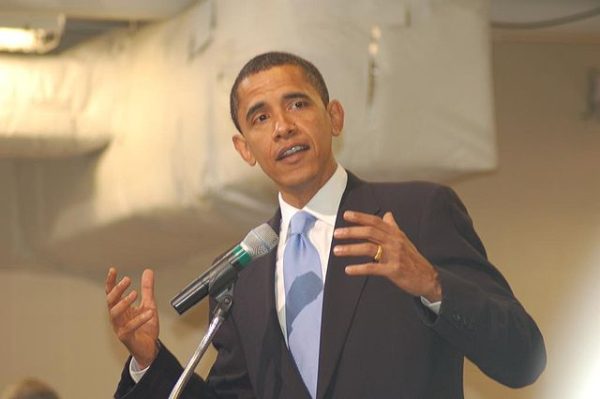
And while Netanyahu officially endorsed a two-state solution, he continually expanded Israel’s network of settlements. In one of his last interviews as president, Obama pointed out that Netanyahu’s “actions” in favor of settlement construction in the West Bank were glaringly at odds with his verbal support of Palestinian statehood.
Late last month, Netanyahu’s relations with Obama hit rock bottom when the United States abstained on a United Nations Security Council resolution condemning settlements, thereby allowing the motion to pass by a 14-0 margin.
Washington’s position was consistent with U.S. policy since the Six Day War, but it greatly angered Netanyahu, who last met Trump at his residence in New York City last September.
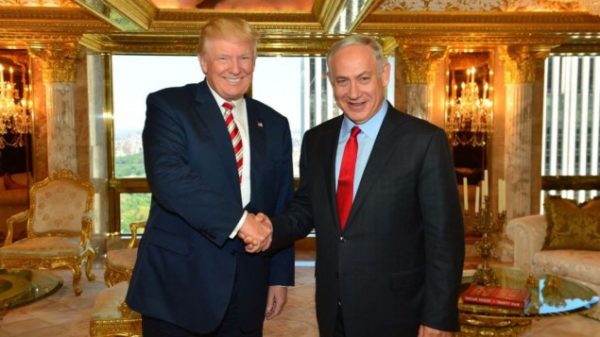
Much to Netanyahu’s delight, Trump, who has called himself “very, very strong on Israel,” criticized the Obama administration over its decision not to veto that resolution. “We cannot continue to let Israel be treated with such total disdain and disrespect,” he tweeted.
And in a jab at the UN and the Obama administration, he added, “As the United States has long maintained, peace between the Israelis and the Palestinians will only come through direct negotiations between the parties and not through the imposition of terms by the United Nations.”In a direct reference to the resolution, he said, “This puts Israel in a very poor negotiating position and is extremely unfair to all Israelis.”
Trump urged Israel to “stay strong,” as the January 20 inauguration day “is fast approaching.”
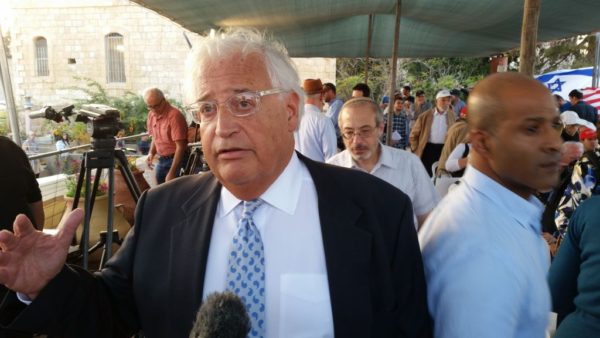
A week before his intervention on behalf of Israel, Trump announced he would nominate David Friedman — a New York City bankruptcy lawyer who has represented Trump in his real estate development business and a Zionist Revisionist whose sympathies lie with Netanyahu’s right-wing government — as the next U.S. ambassador to Israel.
Friedman, who will replace Dan Shapiro, is an outspoken supporter of Israel’s settlement project in the West Bank. Indeed, he has raised money for the Beit El settlement and does not believe settlements are an obstacle to peace. Nor does he think Trump will not apply pressure on Israel to end settlement construction. A two-state solution, he claims, is not “a priority” for Trump.
Much to the indignation and outrage of many American Jews, Friedman has written that backers of JStreet — a liberal pro-Israel group in the United States — are “far worse than kapos — Jews who turned in their fellow Jews in the Nazi death camps.”
And incredibly enough, he has accused Obama, a philosemite, of “blatant antisemitism.”
Jerold Nadler, a congressman from New York City, has warned that Friedman’s confirmation as ambassador will have “dangerous consequences for both the United States and Israel.”
In announcing Friedman’s nomination, Trump declared, “The bond between Israel and the United States runs deep, and I will ensure there is no daylight between us when I’m president. David Friedman will maintain the special relationship between our two countries.”
Friedman is looking forward to carrying out his mission “from the U.S. embassy in Israel’s eternal capital, Jerusalem.”
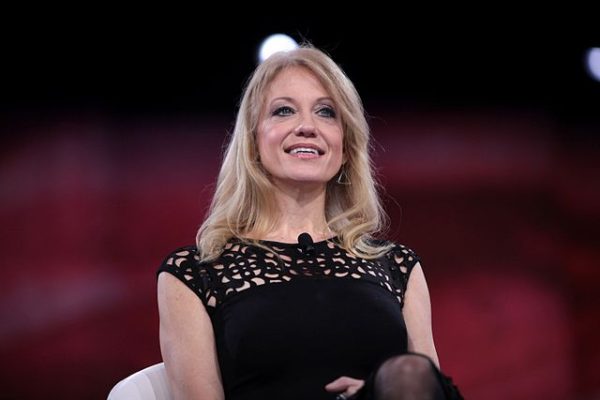
During the election campaign, Trump promised to move the U.S. embassy from Tel Aviv to Jerusalem. It’s a “very big priority” for him, one of Trump’s closest associates, Kellyanne Conway, has said. “He made it very clear. I’ve heard him repeat it several times privately, if not publicly. It is something that our friend Israel, a great friend in the Middle East, would appreciate and something that a lot of Jewish Americans have expressed their preference for.”
James Mattis, Trump’s choice for secretary of defence, has not aligned himself with this policy. At his confirmation hearings earlier this month,, he said, “The capital of Israel … is Tel Aviv.”
Israel’s capital is in western Jerusalem, but neither the United States nor any other country recognizes it. The official U.S. policy is that its embassy cannot be moved to Jerusalem until Israel settles its conflict with the Palestinians.
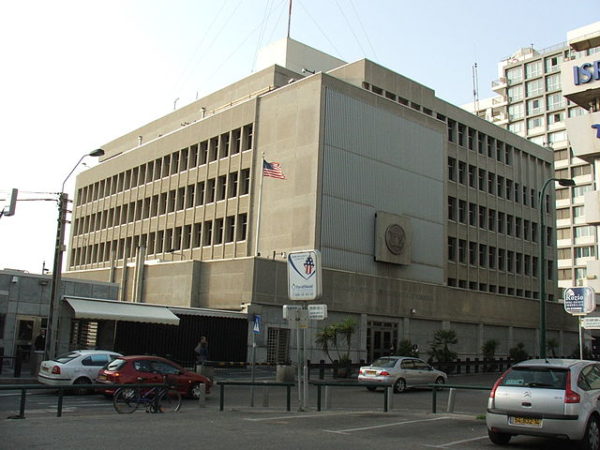
In 1995, during Bill Clinton’s presidency, the U.S. Congress passed the Jerusalem Embassy Act empowering the United States to transfer its embassy to Israel’s capital. Each president since then has signed a waiver every six months delaying the move “to protect the national security interests of the United States.”
If Trump decides not to sign the waiver, the United States would be obliged to move its embassy to Jerusalem.
John Kerry, the outgoing U.S. secretary of state, has warned that implementation of the Jerusalem Embassy Act would trigger “an absolute explosion in the region.”
The president of the Palestinian Authority, Mahmoud Abbas, has also issued dire warnings about its consequences.
Trump, who has hailed Israel as “the one true democracy and defender of human rights in the Middle East,” has said his administration will play a major role in trying to broker a peace treaty between Israel and the Palestinians. He has called it “the ultimate deal.”
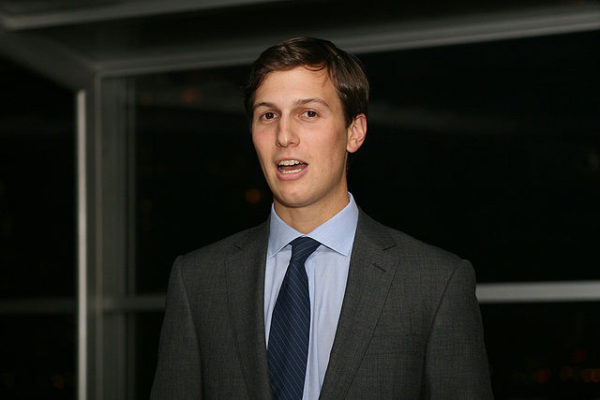
Several days ago, Trump told a British newspaper he will appoint his son-in-law and senior advisor, Jared Kushner, to broker a Middle East peace agreement.
Netanyahu may not be interested in promoting a two-state solution. During his first visit to the Trump White House, he most likely will focus on three issues.
He’ll ask the new American president to shield Israel from mounting international pressure to withdraw from the West Bank and to acquiesce to the formation of an independent Palestinian state. (Israeli Education Minister Naftali Bennett, who’s to the right of Netanyahu, has characterized Trump’s accession to power as “an opportunity” to bury the two-state solution once and for all).
He’ll contend that the battle against Iranian expansionism and Muslim radicalism, as exemplified by Islamic State, should take precedence over the effort to defuse the Arab-Israeli dispute.
He’ll argue that the Iran nuclear accord should be renegotiated, if not altogether scrapped.
This is quite a wish list, but it remains to be seen whether Trump will buy it.
